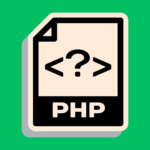The rapid advancement of technology over the past few decades has fundamentally changed the way businesses operate and make decisions. As emerging technologies continue to disrupt traditional business models, companies must adapt their decision-making strategies to capitalize on new opportunities in growing markets. This article analyzes how innovations in artificial intelligence, big data analytics, the Internet of Things, blockchain, and other technologies are reshaping business decisions across various industries.
Leveraging AI and Machine Learning
Artificial intelligence and machine learning are unlocking new capabilities for businesses to process data, identify insights, and automate routine tasks. By applying AI and ML algorithms to large datasets, companies can uncover hidden patterns and predict future trends with higher accuracy.

This empowers leaders to make data-driven decisions on critical areas like pricing, inventory management, targeted marketing, and risk assessment. For instance, ML techniques help e-commerce companies dynamically adjust prices based on real-time demand forecasting. AI also allows financial institutions to modernize KYC processes, reduce fraud, and provide personalized product recommendations – decisions that help capture emerging consumer segments.
As AI and ML continue to mature, they are reshaping decision frameworks for supply chain optimization, predictive maintenance, customer churn prevention, and other processes. Companies investing in building AI expertise and infrastructure will gain a competitive edge in leveraging AI-enabled decision-making.
Analyzing Big Data Analytics
The sheer volume of structured and unstructured data being generated today offers unprecedented opportunities for companies to derive actionable insights. By implementing big data analytics, organizations can store, process, and analyze vast amounts of data from internal and external sources. This powers data-driven decision-making across the business.
For example, big data enables retailers to track micro-trends in consumer behavior and tailor promotions, pricing, inventory, and merchandising decisions at a hyper-local level. Streaming analytics allows financial services firms to detect fraud in real time and make risk-based lending decisions by assessing various consumer data points. Big data also facilitates the development of smart cities, intelligent transportation systems, and other public sector initiatives by synthesizing insights across agencies.
As analytics capabilities mature, they are shifting leadership decisions from intuition-based to metrics-driven. Companies need a data-driven culture and technology infrastructure to fully harness big data analytics for strategic decision-making today.
Capitalizing on the Internet of Things
The Internet of Things represents a network of internet-connected sensors, devices, and equipment that generates troves of performance data. By tapping into the Internet of Things ecosystem, companies can optimize operational decisions across facilities, supply chains, and infrastructure. IoT enables what is known as predictive maintenance – leveraging real-time monitoring data from machinery to anticipate maintenance needs before a breakdown. This prevents costly downtime and drive more efficient capital allocation decisions on equipment upgrades.
Supply chain leaders also utilize IoT sensor data and analytics to track inventory levels, predict supply-demand variability, and make logistics decisions. Utilities leverage smart meters and IoT devices to balances energy loads, forecast electricity demand, and avoid outages. Deploying IoT technology requires upfront investments but allows organizations to make better decisions at scale.
Implementing Blockchain Solutions
Blockchain technology, most known for powering cryptocurrencies like Bitcoin, is now poised to transform business decision making. A blockchain network establishes a shared, immutable ledger for recording transactions and data exchanges. This enables greater transparency, security, and process integrity when multiple parties are involved in a transaction or data exchange.
In banking, blockchain enables faster cross-border payments, seamless digital identity verification, and improved fraud detection – key decisions that help serve emerging consumer segments. Complex supply chains also benefit from blockchain’s ability to trace products to verify authenticity and compliance. Blockchain further expands opportunities for ‘smart contracts’ and other autonomous decision making between organizations. Although adoption is still early, blockchain applications are gaining momentum across sectors.
Rethinking Strategies for the Future
From artificial intelligence to big data analytics, emerging technologies are equipping business leaders with new capabilities to enhance decision making. To capitalize on this potential, companies need to take a forward-thinking approach to their business strategies and operations.
This involves developing an innovation culture and implementing agile frameworks to pilot new technologies. Building partnerships with startups and academia allows organizations to get early access to promising R&D.
Companies also need to continually reskill workforces for emerging roles like data scientists, IoT architects, blockchain developers, and machine learning engineers to embed new competencies. Rather than being reactive, leadership teams should proactively realign business models to leverage technology innovations on the horizon.
As technology integration reaches new heights, data-driven decision making will become a key competitive differentiator. Companies that actively reshape their operational and strategic thinking around AI, big data, IoT, blockchain and other exponential technologies will be best positioned to make smart decisions in fast-growing markets of the future. The winners will be those harnessing technologies to uncover insights, respond to market changes, and operate with decisiveness at scale.





